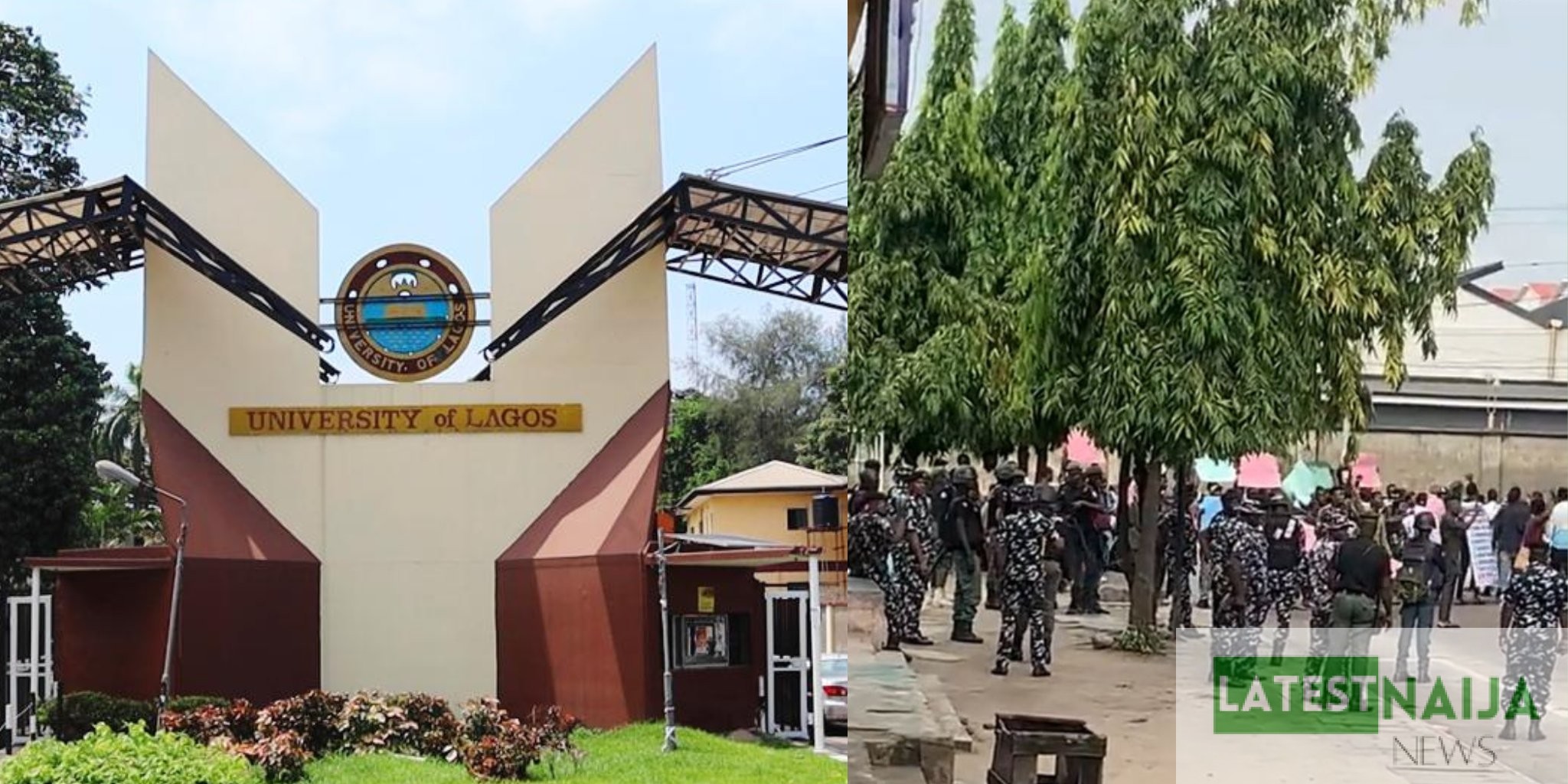
In a dramatic turn of events on Wednesday, the campus of the University of Lagos (UNILAG) became the epicenter of chaos as officers of the Nigerian Police Force deployed tear gas to disperse students protesting against the recent tuition fee increase.
What initially began as a peaceful demonstration rapidly devolved into a volatile situation when police officers, assigned to oversee the students’ activities, resorted to firing tear gas canisters to maintain control.
The protest had been organized by UNILAG students in response to the institution’s decision to increase tuition fees, a move that had sparked widespread discontent among the student body.
The National Association of Nigerian Students (NANS) had previously issued a stern warning to the Department of State Services (DSS) on Tuesday, asserting that students’ rights to peaceful protest were universally recognized and protected. Giwa Temitope, the National Public Relations Officer of NANS, criticized the DSS’s claims on Monday, labeling them as propaganda. The DSS had alleged that some politicians were manipulating student leaders to instigate violent protests against the Federal Government over socio-economic issues.
In defiance of the DSS’s statement, Temitope confidently stated that the protest would proceed as planned. This firm stance by NANS had fueled the determination of the UNILAG students who had gathered in significant numbers on Wednesday morning.
As the day progressed, tensions flared, and sporadic confrontations occurred between the students and the police officers deployed to oversee the situation. Eyewitnesses reported instances of student activists engaging in peaceful dialogue with the police before the atmosphere escalated into turmoil, prompting the use of tear gas.
The situation remains volatile, with students demanding a reversal of the tuition fee hike and calling for a more affordable education system in Nigeria. UNILAG authorities have yet to release an official statement in response to the ongoing protests and the police intervention.
This incident raises concerns about the state of freedom of expression and the right to peaceful protest in Nigeria and the delicate balance between maintaining law and order and safeguarding citizens’ fundamental rights. As developments continue to unfold, both students and authorities await further updates on the situation.


Comments are closed.